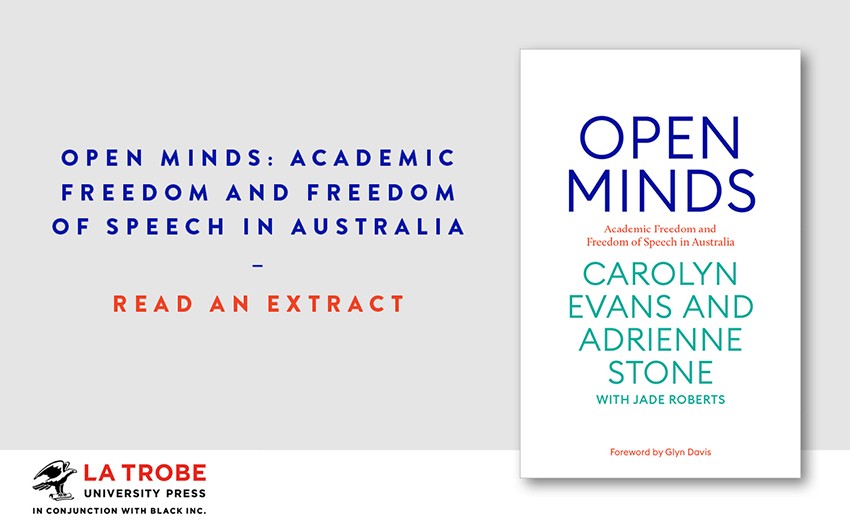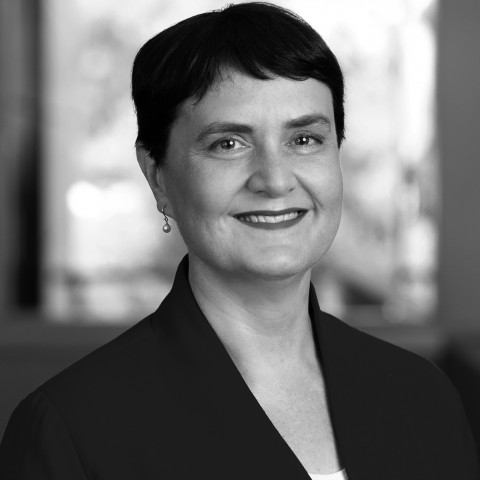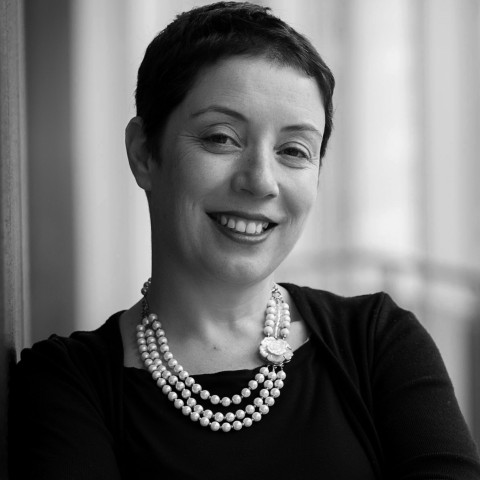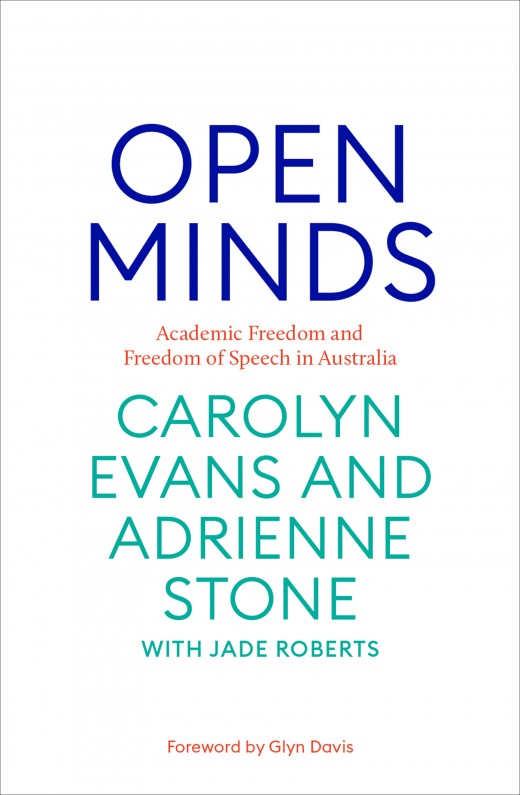News

News >
Read an extract: Open Minds
Read the introduction to Open Minds, a crisp, timely and definitive look at the complex topic of freedom in Australian universities.
The past few years have seen controversies about academic freedom and freedom of speech at Australian universities erupt at regular intervals. Debate has centred on two incidents in particular.
The first was James Cook University’s dismissal of geophysicist Peter Ridd in May 2018, which came after his public criticism of the research being carried out by the university’s Centre of Excellence for Coral Reef Science and the Australian Institute of Marine Science. The dismissal of Ridd, who was well known for his climate-change scepticism, made headlines, and some commentators interpreted it as deliberate interference with Ridd’s academic freedom. The university denied these accusations and said Ridd was fired because he repeatedly breached its code of conduct, both by the manner in which he publicly criticised his colleagues and by disclosing confidential details of directions the university imposed on him in the course of an internal investigation. Although the Federal Circuit Court ruled that the university had unfairly dismissed Ridd and breached the commitment to intellectual freedom laid out in its enterprise agreement, the full Federal Court upheld his termination on appeal, and further proceedings in the High Court may yet ensue.1
The second incident was the student protests that arose in response to Bettina Arndt’s planned appearance at the University of Sydney in September 2018. Arndt, an author and sex therapist, had been invited to speak on campus by the university’s Liberal Club as part of her ‘Fake Rape Crisis Campus Tour’, which contested the scale of the issue of sexual assault on university campuses.2 Small protests had accompanied her appearance at La Trobe University in Melbourne earlier that month, and her arrival at the University of Sydney was met by about forty protesters, who attempted to block attendees from entering the venue.3 The police were called, the protesters were dispelled and Arndt’s speech went ahead. Speaking about the events on radio station 2GB two weeks later, Arndt condemned the protesters as an ‘unruly mob of abusive students’ and urged the university to hold the organisers accountable.4 During an interview with broadcaster Alan Jones, she framed the protests as a freedom of speech issue: ‘Today’s conservatives aren’t interested in shutting down free speech, they’re trying to promote it. And the left, amazingly, is all in favour of silencing people expressing views they don’t like.’5
The furore that greeted these two incidents gained momentum, inspiring claims from those on the right of the political spectrum that Australian universities were increasingly censorious, prone to limiting the diversity of ideas on campus and generally highly intolerant, especially towards conservative thought.6 This political campaign was catalysed by the Institute of Public Affair’s ‘Free Speech on Campus Audit 2018’ (examined in appendix B), which attempted to rank universities by their degree of support for freedom of speech. The audit’s claims were reported by the conservative media and echoed by such think tanks as the Centre for Independent Studies.7 Conservative politicians, such as Liberal senator James Paterson, used them to argue that funding should be stripped from universities.8
The campaign – particularly as it related to on-campus freedom of speech – was somewhat derivative. It was clearly influenced by comparable political campaigns in the United States and tended to rely heavily on reports of American controversies to support its theories, in addition to the few relevant Australian incidents it could point to. But despite its lack of evidence, the campaign was influential.9 At the end of 2018, education minister Dan Tehan announced that an independent review of the rules and regulations protecting intellectual inquiry and freedom of speech on university campuses was to be undertaken, headed by the Hon. Robert French, chancellor of the University of Western Australia and a former chief justice of the High Court.10
The Independent Review and its findings, which are explored in chapter 2, led to some modest regulatory change in Australia, but even as we finished this book during the coronavirus pandemic of 2020, universities were never far from the headlines and even the courts.11 On the one hand, university researchers led the response to the pandemic. Immunologists and epidemiologist were no doubt the most prominent, but the crisis was of such depth that the response required broad disciplinary expertise. Across the sciences, social sciences and humanities, university researchers were at the forefront, helping all of us to understand and respond to the deep social, political, economic and moral challenges we faced.12 On the other hand, old worries about freedom in universities continued.
Murdoch University settled proceedings against an academic member of the university senate who had criticised its admissions procedures, but a clear resolution of the questions of academic freedom at the heart of the dispute was not reached, and Peter Ridd lost his case against James Cook University in the Full Court of the Federal Court.13 As the world order shifted in response to the pandemic, concerns about foreign influence and free speech in Australian universities became ever more acute. The University of Queensland suspended a student leader and member of its university senate for misconduct, sparking claims (denied by the university) that it had suspended him for anti-China activism. Legal action is pending.14
The first aim of this book is to provide the basis for better public discussion by providing some context for these events and an accessible account of the regulatory environment in which universities actually operate. In this respect, it is especially important, we think, to focus on Australia. As scholars of freedom of religion and freedom of speech, we have long been acutely aware of the tendency of Australians to absorb, as if by osmosis, the tenor of American debates. As universities assumed centre stage in public discourse, we again saw this frustrating dynamic. While this book is informed by the debates and events in other countries, we hope that it serves a useful purpose in its clear focus on Australian history, law and culture as they are relevant to speech in our universities.
The book’s opening chapter is designed to serve as a reminder that there has never been a golden age of openness, freedom and tolerance in Australian universities. These values have always faced challenges from government, university leadership, students and academics – all of whom, at different times, have also come to their defence. Claims that intolerant radical students these days have lost sight of the values that sustain university life are at least a century old. Indeed, the climate in universities is currently considerably quieter than during other periods. Equally, the pressure on academics who hold unconventional views or are in conflict with their university is familiar and was especially acute during the Cold War of the middle of the last century.
Though we do not want to dismiss the seriousness of problems now facing Australian universities, this chapter serves as a plea for perspective. It reminds us that governments have the potential to be a serious threat to academic freedom, given their power to interfere in university matters. The greatest contemporary challenge to the Australian university may lie not in the antics of a small number of students but in the pressures brought to bear by external influence of various kinds to which universities are rendered vulnerable by a lack of funding.
This brings us to a larger point: academic freedom and freedom of speech are often treated as synonymous. The second aim of the book is to untangle these concepts and to explain the relationship between them. Academic freedom is the principle that protects the most important and distinctive function of the university – the advancement and dissemination of knowledge. But universities are also institutions of civil society, and in this capacity freedom of speech is valuable for its service to democratic government, personal freedom and dignity. We set out this distinction and make our central argument that the unique role of universities justifies the primacy of academic freedom. While freedom of speech will always be important, in shaping its limits and articulating its boundaries, universities can and should consider academic values first.
Having stated the principle in outline, we then consider what it means in practice by focusing on the issue of public commentary by academic researchers, a context in which the two freedoms are sometimes confused. As we show, there are two circumstances in which academics should be understood to be relying on academic freedom: when speaking within their broad area of expertise and when commenting on or criticising university governance. In contrast, when academics make general public comments that are not informed by their academic expertise, we argue that academics are exercising their right to freedom of speech.
The distinction is important, because although academic freedom is narrower than a general right to freedom of speech, it is also stronger. When relying upon academic freedom, the position of academics is (or at least should be) quite different from the position of others. Specifically, academics ought to have much more freedom than other employees of universities to discuss their work and ideas and to criticise university governance. When exercising ordinary free speech rights, however, academics are more or less in the same position as other citizens and, specifically, other employees of universities. This still leaves them with a considerable and broad scope of free speech, but it is subject to a wider variety of justifiable limitations.
We reiterate and elaborate on the importance of this freedom as a political value, yet we seek to show that the controversy over freedom of speech in universities occurs within quite a narrow domain. First, speech in universities must be legal. Academics, staff and students have no greater right than anyone else to defame, threaten, engage in racial and religious vilification, obstruct public roads or occupy public space in the name of freedom of speech. Second, much expressive activity in universities – activity that is part of, or closely related to, teaching and research – falls within the ambit of academic freedom rather than freedom of speech. For the most part, free speech questions in universities arise within what we call the ‘public square’ of the university. That is, they arise in relation to expressive activity in public areas, at public events or in the course of other activities that are not part of the university’s teaching and research mission – for example, student protests or public lectures by controversial speakers.
Typically, a spirit of openness and lively debate will promote just the kind of environment in which academic inquiry will also thrive. In most respects, therefore, the reasons to limit speech in universities resemble the principles that govern it elsewhere in the public realm. Speech should only be limited where it causes a sufficiently serious form of harm, and rules limiting freedom of speech should be impartially drawn, fairly enforced, no broader than necessary and reasonably clear. Moving into more controversial territory, we accept the prospect that speech that could cause serious emotional harm (not mere offence) may sometimes justify limiting freedom of speech, a position that is widely accepted internationally.
In addition, we think that there are circumstances – hopefully rare – where speech may interfere with the environment necessary for teaching and research. Where speakers flagrantly disregard or undermine academic values, where they advance obviously untrue and even dangerous ideas, or where they attack or denigrate a group within the university, the environment for research and teaching is damaged not promoted. In such cases, there is an especially strong case for universities to take action to defend academic values, though of course they must act with care and proportion.
The broad principles relating to freedom of speech are of course easier to state than apply, and the book also considers difficult practical questions like the costs incurred by controversial speakers in universities, the use and potential misuse of disciplinary codes, and the difficult line between robust debate and harassment and bullying. The final aim of this book is to address these and other difficult questions that universities face as they seek to uphold academic freedom and freedom of speech while recognising their limits.
We address the challenging context of globalisation and commercialisation that has dramatically reshaped the way universities are funded. Students are paying more for their degrees; the student body is increasingly international; more and more research funding comes from philanthropic donations and commercial and governmental partnerships. Some of these trends have no doubt contributed to their rapid rise in international standing.15 But they also place pressures on universities, as students, research partners and governments (including foreign governments) seek to influence research, teaching and public discussion in universities.
We argue that universities are right to capitalise on the opportunities that arise but must do so with a clear sense of the university’s fundamental purpose. Universities need to educate their staff and students about academic freedom and free speech, and they need to work with commercial and governmental partners to ensure these values are well understood and respected in partnership arrangements.
We conclude by considering how universities might promote these values and their understanding. The two most prominent models available to and pressed upon them are the much-discussed Chicago Principles and the Model Code produced by the Independent Review. We assess these models and argue that they are useful starting points but we would expect Australian universities to adopt the kinds of ideas presented to their own specific contexts.
The overriding tenor of the book is, we hope, optimistic. We are determined idealists. Universities are not simply forums for the politics of society at large. They are not commercial institutions, nor are they instruments of government. They are special communities dedicated to teaching and research. Their challenges are many and complex, but we believe it is essential, and also possible, for universities to be faithful to the core ideals of the university, even in the modern globalised and commercialised age.
Open Minds: Academic freedom and freedom of speech in Australia is out now.
Notes
1 Ridd v James Cook University (No. 2) [2019] FCCA 2489 (6 September 2019). In a similarly well-publicised incident, Murdoch University removed the associate professor Gerd Schröder-Turk from his university senate position following Schröder-Turk’s criticism of the university’s admission policies on the ABC program Four Corners. In response, Schröder-Turk launched a legal action against the university under whistleblower protection laws, and Murdoch University launched – but dropped after widespread criticism – a counterclaim for damages, arguing that student admissions had declined as a result of Schröder-Turk’s comments. Christopher Knaus, ‘Academics Condemn “Harassment” of Whistleblower by Murdoch University’, The Guardian, 15 October 2019, www.theguardian.com/australia-news/2019/oct/15/academics-condemn-harassment-whistleblower-murdoch-university-schroeder-turk; Dallas Bastian, ‘Murdoch University Drops Financial Claim against Whistleblower’, Campus Review, 15 January 2020.
2 Arndt would go on to speak at the University of Western Australia on 7 March 2019, despite the UWA and Curtin student guilds calling on the university to cancel her engagement. Elanor Leman, Eliza Huston and Sophie Minissale, ‘Bettina Arndt Is Still Set to Speak at UWA Despite Actions from Student Guild and Working Groups’, Pelican Magazine, 1 March 2019, pelicanmagazine.com.au/2019/03/01/bettina-arndt-is-still-set-to-speak-at-uwa-despite-actions-from-student-guild-and-working-groups.
3 Gavin Fernando, ‘Riot Squad Called to Sydney University Over Protests to Sex Therapist Bettina Arndt’, News.com.au, 12 September 2018, www.news.com.au/lifestyle/real-life/news-life/riot-squad-called-to-sydney-university-over-protests-to-sex-therapist-bettina-arndt/news-story/0698b147e38b44f2b13fc3766664385c.
4 Bettina Arndt, ‘Psychologist Slams Hypocritical Mob of “Abusive” Protesters for Bullying’, interview by Chris Smith, The Chris Smith Show, 2GB, 24 September 2018, www.2gb.com/psychologist-slams-hypocritical-mob-of-abusive-protesters-for-bullying.
5 Bettina Arndt, ‘Right Wing Commentators Repeatedly Being Slammed with Hefty Bills for Free Speech’, interview by Alan Jones, The Alan Jones Breakfast Show, 2GB, 11 September 2018, www.2gb.com/right-wing-commentators-repeatedly-being-slammed-with-hefty-bills-for-free-speech. In June 2019, an internal investigation into the incident characterised both the event and the protest as legitimate manifestations of free speech, finding there was no intent among the protesters to stop the event from occurring. The investigation went on to criticise Arndt for not respecting the investigation’s confidentiality and identifying some of the students involved in the protest on social media, leading to the students being subject to derogatory online comments and threats of rape. Michael Koziol, ‘Students Given Green Light to Protest after University Dismisses Free Speech Concerns’, The Sydney Morning Herald, 4 June 2019, www.smh.com.au/politics/federal/students-given-green-light-to-protest-after-university-dismisses-free-speech-concerns-20190604-p51ueo.html.
6 Matthew Lesh, ‘Free Speech on Campus Audit 2018’, Institute for Public Affairs, Melbourne, December 2018, 2.
7 Rebecca Urban, ‘Universities Declaring War on Free Speech’, The Australian, 10 December 2018; Jeremy Sammut, ‘University Freedom Charters: How to Best Protect Free Speech on Australian Campuses’, Policy Paper, no. 10, October 2018.
8 James Paterson, ‘ANU and Western Civilisation Course: Time to Punish Unis That Limit Freedom of Thought’, The Australian, 18 June 2018, www.theaustralian. com.au/opinion/anu-and-western-civilisation-course-time-to-punish-unis-that-limit-freedom-of-thought/news-story/6bfc31e03935c63b12334121e5256e37.
9 For a critical analysis of the Institute for Public Affairs’ work on this question, see appendix B.
10 Dan Tehan, ‘Review into University Freedom of Speech’, media release, 14 November 2018, https://ministers.dese.gov.au/tehan/review-university-freedom-speech.
11 Robert French, ‘Report of the Independent Review of Freedom of Speech in Australian Higher Education Providers’, Department of Education and Training, Canberra, 2019.
12 Jay J.V. Bavel, Katherine Baicker, P.S. Boggio et al., ‘Using Social and Behavioural Science to Support COVID-19 Pandemic Response’, Nature Human Behaviour, vol. 4, 2020, 460–71; Agnes Callard, ‘What Do the Humanities Do in a Crisis?’, The New Yorker, 11 April 2020; Manuela Gerlof and Rabea Rittgerodt (comps), ‘13 Perspectives on the Pandemic: Thinking in a State of Exception’, De Gruyter, Berlin, www.degruyter.com/staticfiles/craft/media/doc/DG_13perspectives_ humanities.pdf.
13 ‘Murdoch University Moves to End Fight with Academic Gerd Schroeder-Turk’, The Australian, 3 February 2020; James Cook University v Ridd [2020] FCAFC 123.
14 ‘Queensland Student Drew Pavlou’s Suspension Reduced but Will Remain Out of University Until 2021’, The Guardian, 13 July 2020; Michael McKenna, ‘UQ Student Drew Pavlou Launches $3.5m Legal Action’, The Australian, 11 June 2020.
15 John Ross, ‘The World University Rankings 2020: Australia Hits Record High’, Times Higher Education World University Rankings, 11 September 2019, www.timeshighereducation.com/news/world-university-rankings-2020-australia-hits-record-high.
Share this post
About the authors
Carolyn Evans is the vice-chancellor and president of Griffith University. Previously, she was the deputy vice-chancellor of the University of Melbourne and the dean of Melbourne Law School. An internationally recognised expert on religious freedom and human rights, Carolyn is the author of Religious Freedom under the European Court of Human Rights, Australian Bills of Rights and The Legal Protection of Religious Freedom in Australia. She is the coeditor of Religion …
More about Carolyn Evans
Adrienne Stone holds a chair at Melbourne Law School, where she is also a Kathleen Fitzpatrick Australian Laureate Fellow, a Redmond Barry Distinguished Professor and the director of the Centre for Comparative Constitutional Studies. She is president of the International Association of Constitutional Law and an elected fellow of the Academy of Social Sciences in Australia and the Australian Academy of Law. Adrienne has published widely in international journals and is the coeditor of The Oxford …
More about Adrienne Stone





